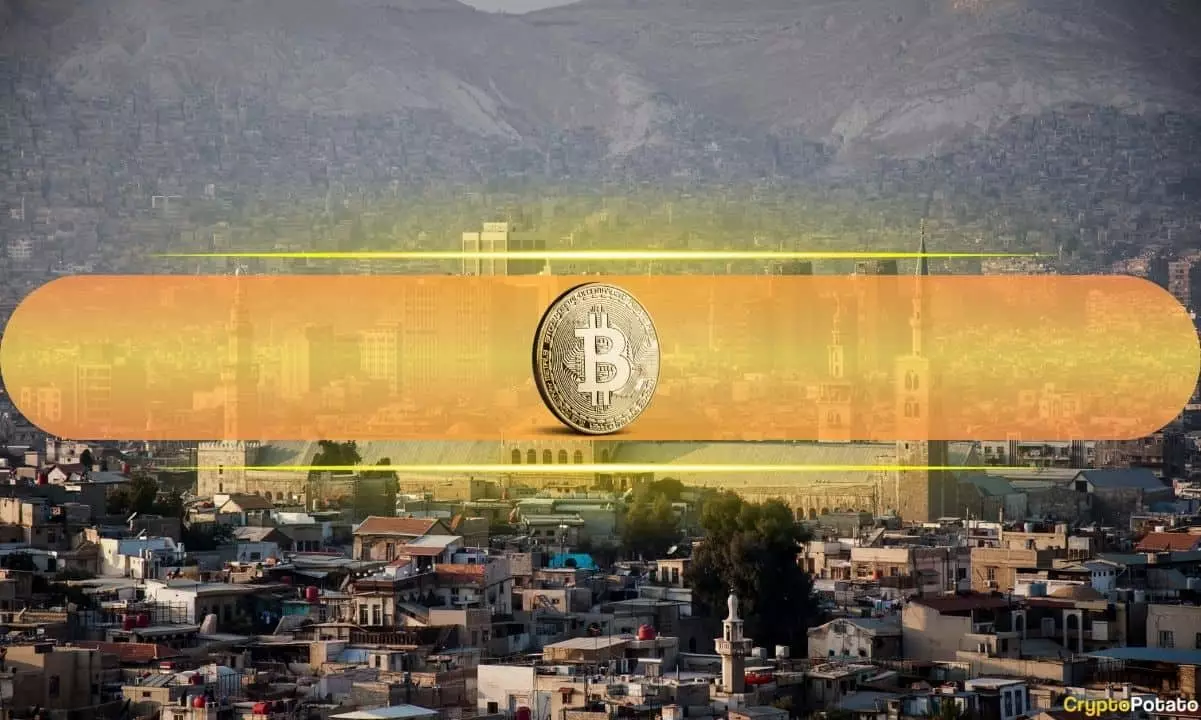Syria’s economy is currently grappling with the devastating effects of a prolonged conflict, leading to an unprecedented hyperinflation and a significant devaluation of its national currency. In this dire situation, the Syrian Center for Economic Research (SCER) has put forth a transformative proposal advocating for the legalization of Bitcoin and the digitization of the Syrian pound. This initiative aims not only to stabilize the declining economy but also to create a forward-looking digital financial ecosystem. Such a move could potentially represent a considerable pivot in monetary policy, aiming to both revive local economic activity and lure foreign investment into a nation marked by instability.
The Proposal’s Rationale
At its core, the SCER’s proposal responds aptly to the urgent need for economic rejuvenation. By introducing a dual banking structure that embraces both traditional and decentralized systems, the plan seeks to encourage innovation while ensuring compliance with regulatory standards. Of paramount importance is the digitization of the Syrian pound via blockchain technology, a bold step toward enhancing transaction security and transparency. This plan could fundamentally change how financial transactions are conducted within the country, fostering a more efficient and traceable monetary transfer system.
Moreover, by backing the digital pound with valuable assets such as gold and other reserves, Syria could establish a more stable monetary unit that could withstand inflationary pressures. In theory, this would help to stabilize the purchasing power of the currency, thus relieving ordinary citizens of some of the economic burdens they currently face.
One of the significant benefits of this integration of Bitcoin and the newly digitized currency would be the empowerment of local entrepreneurs. Creating a legislative framework for cryptocurrency exchange and mining can democratize access to financial resources. If implemented, these measures could spur innovation and grant Syrian citizens the ability to engage in a competitive market free from the monopolistic practices that characterize much of the region’s current economic landscape.
By fostering private property rights and enabling individuals to maintain sole custody of their digital assets, the proposal not only champions economic freedom but also aims to cultivate a culture of entrepreneurship, essential for driving sustained economic recovery in a post-war context.
However, the SCER does recognize the multitude of hurdles that lie ahead. Critically, the lack of technological infrastructure poses a significant barrier to the effective implementation of this ambitious plan. Many citizens remain unaware of digital currency dynamics, limiting the societal buy-in necessary for such a substantial transformation. Moreover, geopolitical tensions continue to exacerbate the nation’s challenges, potentially stifling foreign investment endeavors.
The SCER has been honest in communicating that the transitional government has not yet endorsed this proposal, implying a significant delay in realizing these measures. It is critical to note that this initiative does not serve to sidestep international sanctions. Instead, the SCER emphasizes the need for lifting such restrictions to facilitate economic recovery in a manner consistent with international law.
The Role of International Community
The context of these discussions is further accentuated by the recent statements from Syria’s new Foreign Minister, Asaad Hassan al-Shibani. He has called for an urgent reassessment of international sanctions, which were initially placed on the regime of Bashar al-Assad. Al-Shibani argues that these measures are now counterproductive, harming ordinary citizens and undermining the nation’s reconstruction efforts. If successful, the lifting of these sanctions could enable Syria to engage more robustly with the global economy, thereby creating an environment where initiatives like the SCER’s proposal can flourish.
In essence, SCER’s proposal to legalize Bitcoin and digitize the Syrian pound presents a progressive vision for reviving a battered economy. While the hurdles are prominent, the potential for cryptocurrency to catalyze changes in Syria’s financial landscape is substantial. By laying down a framework for technological advancement and innovation, there remains a flicker of hope for a nation seeking to reclaim its economic autonomy amid historical challenges. As the world watches, the success of such initiatives may hinge on a collective effort to traverse both domestic limitations and external pressures.

